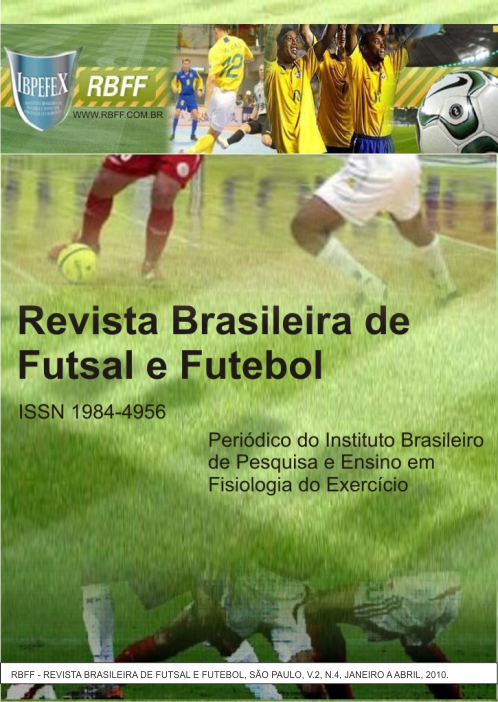School Football as inclusion
Abstract
This study presents the central theme Football as social inclusion in a project to its practice, Bom de Bola Project. In this study, we will describe the profile and demonstrate the social inclusion of participants through Bom de Bola. This way, the method used was descriptive, through a questionnaire to forty-nine participants, we seek the profile, some dreams and motives that led them to participate in the project. This profile has identified age, year of entry and how many times they participated. About the dreams and motivations to participation, the responses indicate that expectations are a lot of money to be able to help the family. The profile data indicated that most participants in the project began at 12 years old, with the highest percentage appeared in two editions, and being motivated by their physical education teachers. To become a great player and play in famous teams in Brazil or abroad and even in the national team was another dream of student athletes. About their future as a player, many of them said they would like to avoid involvement with drugs. It was clear that this project also mobilizes young people to think about to be protagonists in social projects, because when asked about a great dream, significant percentage indicated interest to invest in a project of social inclusion from the football.
References
- Buriti, M.A. Psicologia do esporte. 2ª edição. Campinas. Editora Alínea. 2001.
- Capela, P.R. O futebol brasileiro como conteúdo da educação física brasileira. Dissertação de mestrado. UFSC. 1996.
- Damo, A. S. Do dom à profissão: uma etnografia do futebol de espetáculo a partir da formação de jogadores no Brasil e na França. Tese de Doutorado em Antropologia Social. Universidade Federal do Rio Grande do Sul. Porto Alegre. 2005.
- Leal, J.C. Futebol: arte e ofício. Rio de Janeiro. Sprint. 2000.
- Lever, J. A loucura do futebol. Editora Record. 1983.
- Liberali, R. Metodologia Científica Prática: um saber-fazer competente da saúde à educação. Florianópolis. 2008.
- Torri, D.; Albino, B. S.; Vaz, A. F. “Nada se consegue sem sacrifício!”: estudo sobre práticas do esporte escolar. In: 2º Congresso Sul-Brasileiro de Ciências do Esporte. 2004. Criciúma. Anais. Universidade do Extremo Sul Catarinense. p. 1-9. 2004.
- Wuolio, J. Futebol, o Jogo mais Popular. Enciclopédia Salvat da Saúde. Rio de Janeiro. Salvat Editora do Brasil. 1981.
- Zaluar, A. O esporte na educação e na política pública. Revista Educação e Sociedade. Núm. 38. 1991.
Authors who publish in this journal agree to the following terms:
- Authors retain the copyright and grant the journal the right of first publication, with work simultaneously licensed under the Creative Commons Attribution License BY-NC which allows the sharing of the work with acknowledgment of the authorship of the work and initial publication in this journal.
- Authors are authorized to enter into additional contracts separately for non-exclusive distribution of the version of the work published in this journal (eg, publishing in institutional repository or book chapter), with acknowledgment of authorship and initial publication in this journal.
- Authors are allowed and encouraged to post and distribute their work online (eg, in institutional repositories or on their personal page) at any point before or during the editorial process, as this can bring about productive change as well as increase impact and impact. citation of published work (See The Effect of Free Access).





